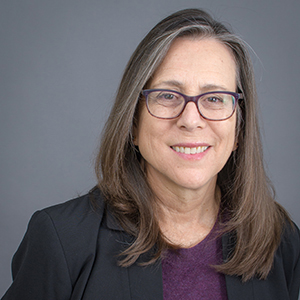Bebbingtons’ book delves into ‘Governing Extractive Industries’

In their recently published book, “Governing Extractive Industries: Politics, Histories, Ideas,” Clark University professors Anthony Bebbington and Denise Humphreys Bebbington have joined with scholars in Africa and Latin America to ask how political histories and longstanding ideas about development influence contemporary natural resource governance. The authors deploy these interpretations of the past to draw out implications for development and social inclusion.
The book, published by Oxford University Press, is available online as an open-access e-book. A collaborative effort with colleagues Abdul-Gafaru Abdulai of the University of Ghana, Marja Hinfelaar of the Southern African Institute for Policy and Research in Zambia, and Cynthia Sanborn of the Universidad del Pacífico in Peru, “Governing Extractive Industries” addresses the political relationships that have underlain patterns of mineral and hydrocarbon extraction in Latin America and Africa from the late nineteenth century through the present.
Globally recognized as an expert in the field, lead author Anthony Bebbington is the Milton P. and Alice C. Higgins Professor of Environment and Society and former director of the Graduate School of Geography at Clark. Currently, he is serving as Australia Laureate Fellow at the University of Melbourne. Bebbington has researched natural resource governance within the Andean region since his doctoral student days at Clark in the late 1980s, and has worked on mining and hydrocarbons since 2004.
In September, Bebbington was invited to speak at the annual “Peru in Dialogue” event organized by the National Human Rights Ombudsman’s office. The only academic and non-Peruvian to participate, he presented alongside Peru’s president of the National Confederation of Private Enterprise, the Vice Minister for Mining, and the country’s former Prime Minister and Ombudswoman.

Denise Humphreys Bebbington, research associate professor of International Development and Social Change at Clark, has worked on socio-environmental movements and social justice since 2001, through her efforts as Latin American coordinator for the Global Greengrants Fund. From 2012 to 2016, she was director of the Women’s and Gender Studies Program at Clark. Humphreys Bebbington’s research has addressed the impacts of hydrocarbons development on indigenous peoples in Bolivia; socio-environmental conflicts linked to extractive industry and large-scale development projects; gender and resource governance; women and micro-finance; and the roles of nongovernmental organizations in development.
The book considers the relationships between political settlements and extractive industry and how these politics have affected who is, and is not, included in the benefits that can flow from natural resources.
“We focus on the ways in which political relationships affect extractive industry governance and also how, in turn, natural resources influence politics,” Anthony Bebbington says.
By examining the experiences of Bolivia, Ghana, Peru, and Zambia, the authors aim to lend a broader global perspective to discussions of mining governance. Bebbington explains that pre-existing literature on the topic rarely drew comparisons across continents and long periods of time. “We were each surprised by how much similarity there was among countries, and how much global histories also affected these patterns,” he says.
On a wider scale, “Governing Extractive Industries” contributes to the elaboration of theories of the politics of development. In addition to students and academics, the book’s thematic elements and conclusions will be of interest to philanthropic and social change organizations. According to Bebbington, “This was an attempt to step back, beyond the noise of particular conflicts, investment projects, and policy debates, to ask: What is really going on here?”
“Governing Extractive Industries” soon will be available in a Spanish language version. Published by the Universidad del Pacífico Press in Peru, the translated text also will be available through open access, thanks to the support of the U.K. Department for International Development, via the Effective States and Inclusive Development program at the University of Manchester.


